The CHS supports scholars and their research with a variety of configurations. All fellows receive an appointment for at least one academic year. Fellows receive varying levels of support and may reside at the Center for a term up to 18 weeks, depending on the scope and needs of their proposed projects. The CHS also nominates fellows to special, ongoing positions.
For more information about the research supported by the CHS, see the Fellowships Research Bulletin.
CHS FELLOWS IN HELLENIC STUDIES
CHS/DAI Joint Fellows
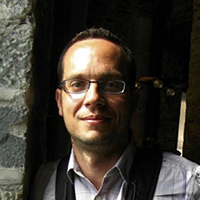 Eric Kansa (PhD Harvard University) directs Open Context, a data publishing venue for archaeology. As a CHS/DAI fellow, he will develop workflows and standards to guide editorial practices and peer-review process for publishing classical archaeology datasets of higher quality, discoverability and usability. Eric’s research interests explore web architecture, service design and how these issues relate to the social and professional context of the digital humanities and social sciences. He also researches policy issues relating to intellectual property, including text-mining and cultural property concerns, and actively participates in a number of Open Science, Open Government, text mining and scholarly user needs initiatives. Eric has taught project management and information service design at the UC Berkeley School of Information and has been a principal investigator and co-investigator on projects funded by the William and Flora Hewlett Foundation, the US National Endowment for the Humanities, the Institute for Museum and Library Services, Hewlett-Packard, the Sunlight Foundation, Google, the Alfred P. Sloan Foundation, the Encyclopedia of Life and the National Science Foundation. Eric is on the board of the Shelby White and Leon Levy Program for Archaeological Publications, a granting program that funds archaeological publications. In June 2013, the White House recognized Eric’s contributions to reforming scholarly communications with a “Champion of Change” award. Eric blogs at https://www.alexandriaarchive.org/blog/.
Eric Kansa (PhD Harvard University) directs Open Context, a data publishing venue for archaeology. As a CHS/DAI fellow, he will develop workflows and standards to guide editorial practices and peer-review process for publishing classical archaeology datasets of higher quality, discoverability and usability. Eric’s research interests explore web architecture, service design and how these issues relate to the social and professional context of the digital humanities and social sciences. He also researches policy issues relating to intellectual property, including text-mining and cultural property concerns, and actively participates in a number of Open Science, Open Government, text mining and scholarly user needs initiatives. Eric has taught project management and information service design at the UC Berkeley School of Information and has been a principal investigator and co-investigator on projects funded by the William and Flora Hewlett Foundation, the US National Endowment for the Humanities, the Institute for Museum and Library Services, Hewlett-Packard, the Sunlight Foundation, Google, the Alfred P. Sloan Foundation, the Encyclopedia of Life and the National Science Foundation. Eric is on the board of the Shelby White and Leon Levy Program for Archaeological Publications, a granting program that funds archaeological publications. In June 2013, the White House recognized Eric’s contributions to reforming scholarly communications with a “Champion of Change” award. Eric blogs at https://www.alexandriaarchive.org/blog/.
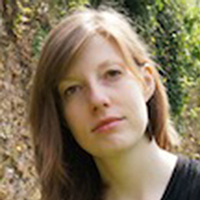 Stéphanie Paul (PhD University of Liège) is a postdoctoral researcher funded by the Belgian National Fund of Research (F.R.S.-FNRS) at the University of Liège, Belgium. Her research focuses on ancient Greek religion during the Hellenistic period, and particularly the continuity and/or change seen in the epigraphic evidence. The topic of the transformations within pantheons is taken into consideration, notably through the study of votive inscriptions and cult-epithets. Her research interests also include the study of sacrificial practices as reflected in the inscriptions. She has published a book in 2013 entitled Cultes et sanctuaires de l’île de Cos(Kernos suppl. 28), issued from her doctoral thesis. Her research at the CHS/DAI will focus on the re-evaluation of the concept of patron deity in Greek cities.
Stéphanie Paul (PhD University of Liège) is a postdoctoral researcher funded by the Belgian National Fund of Research (F.R.S.-FNRS) at the University of Liège, Belgium. Her research focuses on ancient Greek religion during the Hellenistic period, and particularly the continuity and/or change seen in the epigraphic evidence. The topic of the transformations within pantheons is taken into consideration, notably through the study of votive inscriptions and cult-epithets. Her research interests also include the study of sacrificial practices as reflected in the inscriptions. She has published a book in 2013 entitled Cultes et sanctuaires de l’île de Cos(Kernos suppl. 28), issued from her doctoral thesis. Her research at the CHS/DAI will focus on the re-evaluation of the concept of patron deity in Greek cities.
Fall Term Fellows
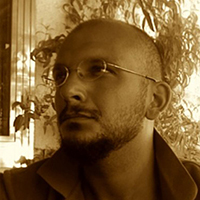 Gianluca Casa (PhD University of Pisa) has been a teacher of Greek and Latin Language and Literature and Ancient History at the Liceo Classico school on the Elba Island. He was research fellow in Greek History at the Scuola Normale Superiore (Pisa). His research interests include Classical and Hellenistic Greece, Ptolemaic Egypt, epigraphy and papyrology, with a special focus on economies and economic behavior. His latest publications include the whole corpus of Ptolemaic ostraka in the re-edition of the Ostraka from the Flinders Petrie Collection (UCL-London). While at the CHS, Gianluca will be working on a comprehensive study of cultural and economic aspects of risk management in the Hellenistic thought.
Gianluca Casa (PhD University of Pisa) has been a teacher of Greek and Latin Language and Literature and Ancient History at the Liceo Classico school on the Elba Island. He was research fellow in Greek History at the Scuola Normale Superiore (Pisa). His research interests include Classical and Hellenistic Greece, Ptolemaic Egypt, epigraphy and papyrology, with a special focus on economies and economic behavior. His latest publications include the whole corpus of Ptolemaic ostraka in the re-edition of the Ostraka from the Flinders Petrie Collection (UCL-London). While at the CHS, Gianluca will be working on a comprehensive study of cultural and economic aspects of risk management in the Hellenistic thought.
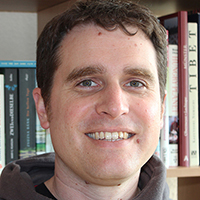 Stefan Feuser (PhD University of Münster) is Research Assistant in Classical Archaeology at the University of Rostock, Germany. He received his MA degree at the Humboldt-University at Berlin and wrote his dissertation about “Monopodia – Figural Table Supports from Asia Minor” at the University of Münster (published in a revised version in 2013) for which he was awarded a travel fellowship of the German Archaeological Institute in 2009. Stefan is author of the book Der Hafen von Alexandria Troas in which he publishes and discusses the results of a field survey in the harbor of Alexandreia Troas. His current research interests include, among others, the urbanism and pictorial representation of Greek and Roman port cities. Since 2012 he is principle investigator of the project “Images and Imaginations of Roman Ports” funded by the German Research Foundation (DFG). While at the CHS he will work on his habilitation project concerning the urbanism of Hellenistic and Roman Imperial harbor cities in the eastern Mediterranean.
Stefan Feuser (PhD University of Münster) is Research Assistant in Classical Archaeology at the University of Rostock, Germany. He received his MA degree at the Humboldt-University at Berlin and wrote his dissertation about “Monopodia – Figural Table Supports from Asia Minor” at the University of Münster (published in a revised version in 2013) for which he was awarded a travel fellowship of the German Archaeological Institute in 2009. Stefan is author of the book Der Hafen von Alexandria Troas in which he publishes and discusses the results of a field survey in the harbor of Alexandreia Troas. His current research interests include, among others, the urbanism and pictorial representation of Greek and Roman port cities. Since 2012 he is principle investigator of the project “Images and Imaginations of Roman Ports” funded by the German Research Foundation (DFG). While at the CHS he will work on his habilitation project concerning the urbanism of Hellenistic and Roman Imperial harbor cities in the eastern Mediterranean.
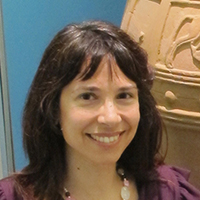 Georgia Flouda is a Curator at the Heraklion Archaeological Museum, where she has been involved in designing and implementing the redisplay of the Minoan Collection. She specializes in Aegean prehistory and classical archaeology (PhD University of Athens) with a focus on the Aegean scripts. Her interests center upon the cognitive aspects of the Aegean writing systems, theoretical approaches to funerary practice, museum exhibits design and interconnecting museum narratives with traditional field research and archaeological material studies. She has co-edited Archaeology and Heinrich Schliemann a century after his death. Assessments and prospects: Myth – History – Science (2012) with G. Korres and N. Karadimas. In 2011, she was awarded a Stanley J. Seeger Visiting Research Fellowship in Hellenic Studies at Princeton University. While based at the CHS, her research will focus on the materialization of burial ideology in the Minoan communities of Apesokari and Porti in the Mesara/Crete.
Georgia Flouda is a Curator at the Heraklion Archaeological Museum, where she has been involved in designing and implementing the redisplay of the Minoan Collection. She specializes in Aegean prehistory and classical archaeology (PhD University of Athens) with a focus on the Aegean scripts. Her interests center upon the cognitive aspects of the Aegean writing systems, theoretical approaches to funerary practice, museum exhibits design and interconnecting museum narratives with traditional field research and archaeological material studies. She has co-edited Archaeology and Heinrich Schliemann a century after his death. Assessments and prospects: Myth – History – Science (2012) with G. Korres and N. Karadimas. In 2011, she was awarded a Stanley J. Seeger Visiting Research Fellowship in Hellenic Studies at Princeton University. While based at the CHS, her research will focus on the materialization of burial ideology in the Minoan communities of Apesokari and Porti in the Mesara/Crete.
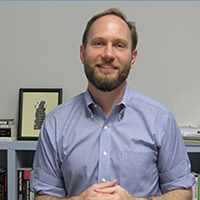 Ryan C. Fowler (PhD Rutgers University) teaches at Franklin and Marshall College and the Lancaster Theological Seminary. At the Center in the fall, he will be working with Alberto Quiroga Puertas on atechnoi in the Cappadocian Fathers. Ryan directs the yearly Greek and Latin Sunoikisis faculty seminars and fall courses, and the Sunoikisis-X courses in the spring. He recently completed two book manuscripts: The Imperial Plato (a translation of Albinus’s Introduction to Plato, Maximus of Tyre’s Dissertation 11, and Apuleius’s On Plato, forthcoming with Parmenides Press), and Plato in the Third Sophistic (forthcoming [September 2014], De Gruyter).
Ryan C. Fowler (PhD Rutgers University) teaches at Franklin and Marshall College and the Lancaster Theological Seminary. At the Center in the fall, he will be working with Alberto Quiroga Puertas on atechnoi in the Cappadocian Fathers. Ryan directs the yearly Greek and Latin Sunoikisis faculty seminars and fall courses, and the Sunoikisis-X courses in the spring. He recently completed two book manuscripts: The Imperial Plato (a translation of Albinus’s Introduction to Plato, Maximus of Tyre’s Dissertation 11, and Apuleius’s On Plato, forthcoming with Parmenides Press), and Plato in the Third Sophistic (forthcoming [September 2014], De Gruyter).
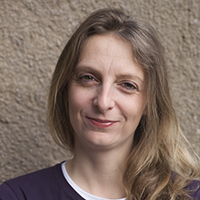 Liz Potter (PhD London University) is a postdoctoral research scholar and lecturer in Ancient Greek at the University of Oxford. Her research interests lie broadly in the Hellenic tradition. Her first book is a study of British Hellenism from the mid-eighteenth century to the early twentieth: it explores the inspiration and the warning perceived to be offered by classical Athens to modern Britain as it moved towards democracy. At the CHS, she will develop her second major research project, a study of rhetoric, performance and emotion in the Greco-Roman world (c.1st-5th centuries). This stage of the project will concentrate on the rhetorical education of young men across the Greek East of the Roman Empire. This extends the research she has conducted as part of the Oxford-based project ‘The Social and Cultural Construction of Emotions: The Greek Paradigm’, when she focused on the emotions that attach to the cultural memory of classical Athens in the texts of the second sophistic.
Liz Potter (PhD London University) is a postdoctoral research scholar and lecturer in Ancient Greek at the University of Oxford. Her research interests lie broadly in the Hellenic tradition. Her first book is a study of British Hellenism from the mid-eighteenth century to the early twentieth: it explores the inspiration and the warning perceived to be offered by classical Athens to modern Britain as it moved towards democracy. At the CHS, she will develop her second major research project, a study of rhetoric, performance and emotion in the Greco-Roman world (c.1st-5th centuries). This stage of the project will concentrate on the rhetorical education of young men across the Greek East of the Roman Empire. This extends the research she has conducted as part of the Oxford-based project ‘The Social and Cultural Construction of Emotions: The Greek Paradigm’, when she focused on the emotions that attach to the cultural memory of classical Athens in the texts of the second sophistic.
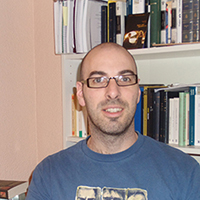 Alberto J. Quiroga Puertas (PhD University of Granada) is a Ramón y Cajal Fellow at the Ancient Greek Department at the University of Granada. His main research interests include Greek imperial literature and late antique rhetoric. He has published on the impact of rhetoric in the creation of cultural and religious identities in Late Antiquity (The Purpose of Rhetoric in Late Antiquity. From Performance to Exegesis. ed. by Alberto J. Quiroga Puertas, Mohr Siebeck, 2013). His research at the CHS will deal with the implications of non-technical proofs in the works of the Cappadocian Fathers.
Alberto J. Quiroga Puertas (PhD University of Granada) is a Ramón y Cajal Fellow at the Ancient Greek Department at the University of Granada. His main research interests include Greek imperial literature and late antique rhetoric. He has published on the impact of rhetoric in the creation of cultural and religious identities in Late Antiquity (The Purpose of Rhetoric in Late Antiquity. From Performance to Exegesis. ed. by Alberto J. Quiroga Puertas, Mohr Siebeck, 2013). His research at the CHS will deal with the implications of non-technical proofs in the works of the Cappadocian Fathers.
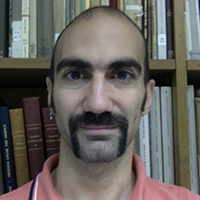 Carlo Vessella (PhD Sapienza – University of Rome, Italy) has been a Lecturer in Classics at the University of Glasgow (2011/12 – 2013/14) and a Visiting Scholar at Wolfson College (Oxford, 2014). He is an Honorary Fellow (Cultore della materia) in Classics and in Comparative Philology at the Unversity of Rome (Sapienza) since 2008. His research focuses on the history of the Ancient Greek language, and in particular on the relationship between its spoken and its literary varieties, and how this was received in ancient scholarship. He has published articles on problems of historical linguistics related to Homeric textual criticism, Greek epigraphy, Atticist lexicography, and Boeotian poetry. He is one of the contributors to CLGP – Commentaria and Lexica Graeca in Papyris Reperta, with a section on Corinna; he also contributed to a history of the literary varieties of Greek edited by A.C. Cassio with four chapters (on classical prose, Menander, Theocritus, and Atticist lexicography). At the CHS, he is working at the revision of the book based on his PhD thesis, an investigation on the ideas about the correct pronunciation of Greek current among the educated elites of the 2nd and 3rd centuries CE, especially as they are reflected in the Atticist lexica.
Carlo Vessella (PhD Sapienza – University of Rome, Italy) has been a Lecturer in Classics at the University of Glasgow (2011/12 – 2013/14) and a Visiting Scholar at Wolfson College (Oxford, 2014). He is an Honorary Fellow (Cultore della materia) in Classics and in Comparative Philology at the Unversity of Rome (Sapienza) since 2008. His research focuses on the history of the Ancient Greek language, and in particular on the relationship between its spoken and its literary varieties, and how this was received in ancient scholarship. He has published articles on problems of historical linguistics related to Homeric textual criticism, Greek epigraphy, Atticist lexicography, and Boeotian poetry. He is one of the contributors to CLGP – Commentaria and Lexica Graeca in Papyris Reperta, with a section on Corinna; he also contributed to a history of the literary varieties of Greek edited by A.C. Cassio with four chapters (on classical prose, Menander, Theocritus, and Atticist lexicography). At the CHS, he is working at the revision of the book based on his PhD thesis, an investigation on the ideas about the correct pronunciation of Greek current among the educated elites of the 2nd and 3rd centuries CE, especially as they are reflected in the Atticist lexica.
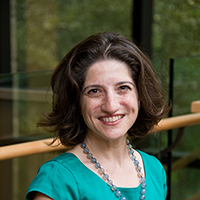 Seemee Ali (PhD University of Dallas) teaches at Carthage College, where she holds a joint appointment in the interdisciplinary Great Ideas Program and the English Department. Her most recent essay, “Wallace Stevens’ Scrawny Cry,” appears in The Lyric Prospect (Dallas Institute Press, 2012). She is now working on a book about immortality and finitude in the Iliad, tentatively entitledThe Reconciliation of Hera and Thetis.
Seemee Ali (PhD University of Dallas) teaches at Carthage College, where she holds a joint appointment in the interdisciplinary Great Ideas Program and the English Department. Her most recent essay, “Wallace Stevens’ Scrawny Cry,” appears in The Lyric Prospect (Dallas Institute Press, 2012). She is now working on a book about immortality and finitude in the Iliad, tentatively entitledThe Reconciliation of Hera and Thetis.
 Kate Birney (PhD Harvard) is Assistant Professor of Classical Studies at Wesleyan University. A Mediterranean archaeologist, she specializes in interaction and cultural exchange between the Aegean and the Near East, both mythological and material. In particular, she is examining interactions between Greece and the Near East in the Persian and Hellenistic periods (6th-2nd c. BC), as part of ongoing archaeological work at the site of Ashkelon, on the south coast of Israel. Her research is focused upon the development of the Hellenistic city and its connections across the Aegean.
Kate Birney (PhD Harvard) is Assistant Professor of Classical Studies at Wesleyan University. A Mediterranean archaeologist, she specializes in interaction and cultural exchange between the Aegean and the Near East, both mythological and material. In particular, she is examining interactions between Greece and the Near East in the Persian and Hellenistic periods (6th-2nd c. BC), as part of ongoing archaeological work at the site of Ashkelon, on the south coast of Israel. Her research is focused upon the development of the Hellenistic city and its connections across the Aegean.
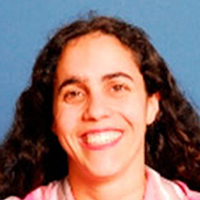 Christy Constantakopoulou (DPhil Oxford) is a Senior Lecturer in the department of History, Classics and Archaeology, Birkbeck College, London. Her research focuses on ancient Greek history and epigraphy. She has published a monograph on the history of the Aegean islands and the concept of insularity in the archaic and classical period (OUP 2007), and has co-edited a volume on networks in the ancient Mediterranean (Routledge 2009). Her current research project is on networks of interaction in the southern Aegean during the third century BC. While at the CHS, she will examine the third-century Delian inventories in order to reconstruct the social dynamics of dedication.
Christy Constantakopoulou (DPhil Oxford) is a Senior Lecturer in the department of History, Classics and Archaeology, Birkbeck College, London. Her research focuses on ancient Greek history and epigraphy. She has published a monograph on the history of the Aegean islands and the concept of insularity in the archaic and classical period (OUP 2007), and has co-edited a volume on networks in the ancient Mediterranean (Routledge 2009). Her current research project is on networks of interaction in the southern Aegean during the third century BC. While at the CHS, she will examine the third-century Delian inventories in order to reconstruct the social dynamics of dedication.
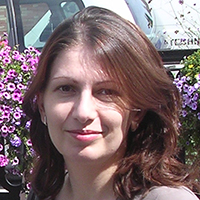 Madalina Dana (PhD École des Hautes Études en Sciences Sociales) is an Assistant Professor in Ancient Greek History at the University Paris 1 Panthéon Sorbonne. Her research focuses on cultural history with special interest in mobility and exchanges in cultural context. Her publications include a book about the cultural and professional networks between the Euxine Pontus and the Mediterranean, a co-edited volume about Greek and Roman colonization, and many articles on literacy and epigraphic practices, mobility of the scholars and local history. At the CHS, her project concerns the publication of a corpus of Greek letters on lead and ostraka, coming principally from the edges of the Greek world, that is the northern shore of the Black Sea and the western regions. She will be exploring the literacy of merchants, before treating the economic, commercial and juridical aspects and also the contacts with local populations in colonial milieu. She also co-directs a program at center AnHiMa in Paris, Diktynna. Épigraphie et société dans les mondes hellénistique et romain.
Madalina Dana (PhD École des Hautes Études en Sciences Sociales) is an Assistant Professor in Ancient Greek History at the University Paris 1 Panthéon Sorbonne. Her research focuses on cultural history with special interest in mobility and exchanges in cultural context. Her publications include a book about the cultural and professional networks between the Euxine Pontus and the Mediterranean, a co-edited volume about Greek and Roman colonization, and many articles on literacy and epigraphic practices, mobility of the scholars and local history. At the CHS, her project concerns the publication of a corpus of Greek letters on lead and ostraka, coming principally from the edges of the Greek world, that is the northern shore of the Black Sea and the western regions. She will be exploring the literacy of merchants, before treating the economic, commercial and juridical aspects and also the contacts with local populations in colonial milieu. She also co-directs a program at center AnHiMa in Paris, Diktynna. Épigraphie et société dans les mondes hellénistique et romain.
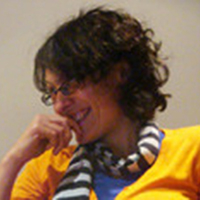 Sebastiana Nervegna (PhD University of Toronto) was educated in Italy and in Canada. She comes to the CHS after holding two fellowships at the Centre for Classical and Near Eastern Studies of Australia. She is the author of Menander in Antiquity: The Contexts of Reception (Cambridge, 2013) and of several contributions on the history, iconography, and reception of ancient theatre. At the CHS she will be working on a monograph on the theatrical reception of Classical Greek tragedy during the Hellenistic Period,Reperforming Classics: The Tragic Repertoire of Ancient Actors (currently under contract with Cambridge University Press).
Sebastiana Nervegna (PhD University of Toronto) was educated in Italy and in Canada. She comes to the CHS after holding two fellowships at the Centre for Classical and Near Eastern Studies of Australia. She is the author of Menander in Antiquity: The Contexts of Reception (Cambridge, 2013) and of several contributions on the history, iconography, and reception of ancient theatre. At the CHS she will be working on a monograph on the theatrical reception of Classical Greek tragedy during the Hellenistic Period,Reperforming Classics: The Tragic Repertoire of Ancient Actors (currently under contract with Cambridge University Press).
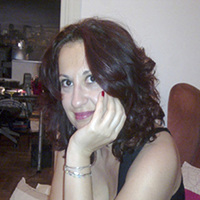 Zacharoula Petraki (PhD University of Birmingham) is a Lecturer in Classics at the University of Crete and an Adjunct Lecturer at the Open University of Cyprus. Her research interests lie in ancient Greek Philosophy, Greek lyric poetry, ancient aesthetics, the performance of ancient Greek poetry, the interface between literature and philosophy and the Philosophy of language. In the Poetics of Philosophical Language (De Gruyter 2011), Zacharoula investigated the diverse literary styles of the Platonic Republic and examined the philosophic reasons behind Plato’s remolding of tropes and techniques from poetry and the Presocratics. During her stay at the CHS, she plans to finish her second monograph on Plato’s use of pictorial arts as metaphors for philosophic discourse and method in the middle and late dialogues.
Zacharoula Petraki (PhD University of Birmingham) is a Lecturer in Classics at the University of Crete and an Adjunct Lecturer at the Open University of Cyprus. Her research interests lie in ancient Greek Philosophy, Greek lyric poetry, ancient aesthetics, the performance of ancient Greek poetry, the interface between literature and philosophy and the Philosophy of language. In the Poetics of Philosophical Language (De Gruyter 2011), Zacharoula investigated the diverse literary styles of the Platonic Republic and examined the philosophic reasons behind Plato’s remolding of tropes and techniques from poetry and the Presocratics. During her stay at the CHS, she plans to finish her second monograph on Plato’s use of pictorial arts as metaphors for philosophic discourse and method in the middle and late dialogues.
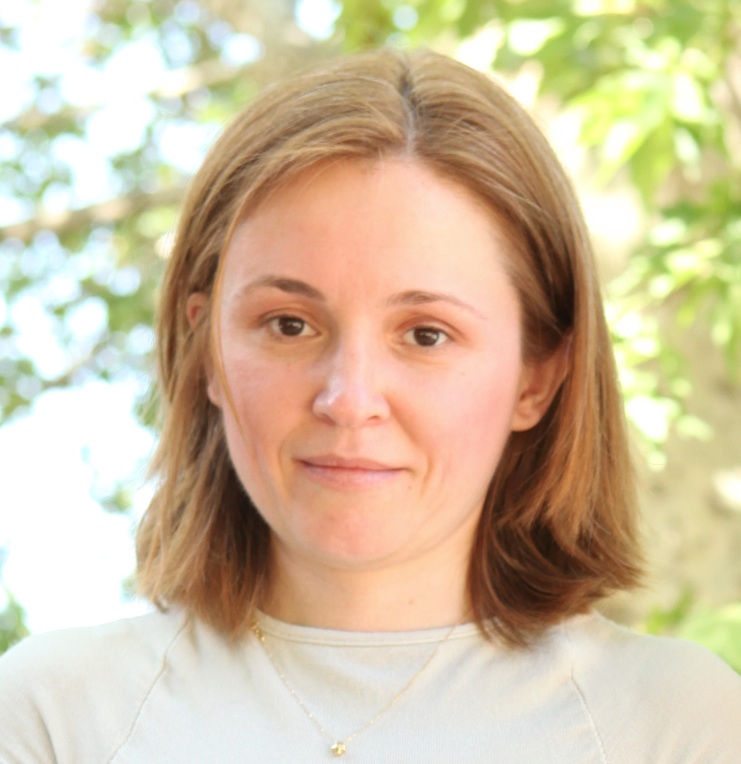 Maria G. Xanthou (PhD Aristotle University of Thessaloniki) has taught Classical Languages, Literature and Thought and ICT in teaching classical languages at Aristotle University of Thessaloniki since 2001. She is Adjunct Lecturer at the Open University of Cyprus since 2012 and a research collaborator of the Centre for Greek Language (Thessaloniki). Her research interests include Greek lyric poetry, both monodic and choral (Stesichorus, Pindar and Bacchylides), Aristophanic and Attic comedy (5th c. B.C.E.), Attic rhetoric (Isocrates), history of classical scholarship (German classical scholarship of the 19th c.), textual criticism, literary theory, rhetoric, ancient theory of rhetoric (definition and use of asyndeton), e-learning, ICT use for teaching classical languages and integration of ICT methodologies in the curriculum. While at CHS, she will pursue further research on the social and cultural construction of fear (φόβος), awe (δέος) and anger (ὀργή) as emotions in the fifth and fourth century BCE political scene in Attica, Greek mainland and the islands, and the formation of good will (εὔνοια) as a response towards these emotions and its significance in the development of Isocrates’s emotional intelligence theory.
Maria G. Xanthou (PhD Aristotle University of Thessaloniki) has taught Classical Languages, Literature and Thought and ICT in teaching classical languages at Aristotle University of Thessaloniki since 2001. She is Adjunct Lecturer at the Open University of Cyprus since 2012 and a research collaborator of the Centre for Greek Language (Thessaloniki). Her research interests include Greek lyric poetry, both monodic and choral (Stesichorus, Pindar and Bacchylides), Aristophanic and Attic comedy (5th c. B.C.E.), Attic rhetoric (Isocrates), history of classical scholarship (German classical scholarship of the 19th c.), textual criticism, literary theory, rhetoric, ancient theory of rhetoric (definition and use of asyndeton), e-learning, ICT use for teaching classical languages and integration of ICT methodologies in the curriculum. While at CHS, she will pursue further research on the social and cultural construction of fear (φόβος), awe (δέος) and anger (ὀργή) as emotions in the fifth and fourth century BCE political scene in Attica, Greek mainland and the islands, and the formation of good will (εὔνοια) as a response towards these emotions and its significance in the development of Isocrates’s emotional intelligence theory.
ONGOING APPOINTMENTS
CHS Associate in Multi-Disciplinary Research/IT and Publications
Ioanna Papadopoulou is a researcher at the Centre de philosophie ancienne de l’université libre de Bruxelles. She is the author of The Song of Penelope. Poetics of weaving women in the Odyssey (Paris, Belin, 1994). With the CHS and other colleagues, she is working on the iMouseion Project, a virtual research environment where scholars and IT architects interact closely while creating processes and tools to support innovative models of interdisciplinary research.
CHS Fellow in Ancient Greek Literature
Effimia Karakantza (PhD Reading) is an assistant professor of ancient Greek literature at the University of Patras. She edited Classics@ Volume 6: Reflecting on the Greek Epic Cycle (2010) and she is the coordinator for Kyklos: The Greek Epic Cycle project.
CHS Associates in Comparative Cultural Studies
Dimiter Angelov (PhD Harvard) is University Fellow in Byzantine History and Lecturer at the University of Birmingham. His research and publications deal with the political and intellectual history of the Byzantine Empire, in particular imperial ideology, court rhetoric and reform literature in late Byzantium.
Panagiota Batsaki (PhD Harvard) is a Fellow of St John’s College, Cambridge, and Newton Trust Lecturer in English at the University of Cambridge. Her research and publications focus on eighteenth-century political economy and the novel; the relationship between literature and sculpture; and issues of exile and translation.
Sahar Bazzaz (PhD Harvard) is Associate Professor of History at the College of the Holy Cross. Her areas of research and publication include colonialism and nationalism in North Africa (especially Morocco), historiography and comparative Islamic modernities.
Dimitris Kastritsis is Lecturer and Research Fellow at the University of St Andrews. He is a specialist on the early Ottoman Empire and its rise to power and prominence in the context of the late Byzantine and Islamic world. In his book The Sons of Bayezid (Brill, 2007), he studied the civil war brought about by Timur’s dismemberment of the first Ottoman Empire in 1402, making use of Ottoman chronicles and a wide variety of other sources. He is especially interested in understanding the nature of early Ottoman society as part of a larger universe stretching from the Balkans to Iran and Egypt. More info about his work is available here.
Ilham Khuri-Makdisi, (PhD Harvard) is Assistant Professor of Middle East and World History at Northeastern University. Her current research focuses on the movement of people and ideas in the late 19th century Eastern Mediterranean, and especially on the formulation of radicalism and leftist ideas.
Anna Stavrakopoulou (PhD Harvard) is Assistant Professor of Theater Studies at Aristotle University of Thessaloniki (Greece). Her current research focuses on historical and theoretical topics related to post-Renaissance European comedy, with a special interest on the Ottoman-Greek theatrical cross-fertilization.
CHS Fellows in Digital Humanities
Mathematician and computer scientist (Univ. Lille I, France), Saïd-Esteban Belmehdi is particularly interested in the algorithmic aspect of digital humanities. He has contributed to such projects as iMouseion and Arboreal. His research this year will focus mainly on text mining tools and their application to digital editions, annotations, commentaries of ancient texts.
Daniel Cebrián Robles is an Industrial Engineer finishing his PhD in fluid mechanics and a postgraduate in the Doctoral Research and Educational Innovation program at the University of Malaga, Spain. His postgraduate research focuses on developing new technologies to improve higher education with competency assessment using online tools such as eRubric and webquest. He has also been involved in the federation of educational online tools for European and American (North, Central and South) federated learning management networks such as the RedIris, EduGain and SINED. At CHS he will be a research fellow for digital humanities to help develop a media-rich open annotation framework for MOOCs, federated and stand-alone learning management systems. For additional details, visit his website danielcebrian.com.
Christina Lafi has a BA degree in English Language and Literature from the Aristotle University of Thessaloniki. She has had a training on programming and editing tools under the supervision of Ioanna Papadopoulou (CHS E.U. Fellow in Multi-Disciplinary Research/IT and Publications) in Paris for two consecutive years. She currently translates posts on kleos@CHS into modern Greek.
Mills McArthur attended Rhodes College in Memphis, TN, majoring in Greek and Roman Studies and minoring in Computer Science. Mills’s academic interests include Athenian political history and digital humanities. He interned with the Center for Hellenic Studies in the summer of 2011, and participated in several Sunoikisis courses during his time at Rhodes. In the summer of 2012, Mills participated in the Kenchreai Archaeological Field School. In 2012-2013 he penned a senior honor’s thesis on the political dimensions of the Athenian fleet. While a senior he also worked for the national office of the Eta Sigma Phi honor society.
CHS Associate in Educational Management
Christos Giannopoulos (PhD University of Ioannina) is the Executive Manager of CHS-Greece. From 2001-07, he worked on many University of Ioannina projects (co-funded by the EU and the Greek State), and he was tenured in 2007 by the University’s Central Office of Administration. His cooperation with Harvard and the CHS started in 2003, when he received a full scholarship for participating in the Harvard Summer School Program in Greece. Christos served as the program’s coordinator for three years (2005, 2007, 2008). In 2008, he resigned from his position at Ioannina to become the executive manager of CHS-Greece.
CHS Fellow in Egyptology
Vincent Razanajao is Editor of the Topographical Bibliography and Keeper of the Griffith Institute’s Archive at the University of Oxford, Faculty of Oriental Studies.
CHS Fellow in Greek Epigraphy
Angela Cinalli has recently obtained her Ph.D. at “La Sapienza” University of Rome in Greek Epigraphy. She is currently developing her doctoral research project on the itinerant men of literacy and music (poeti vaganti) in the epigraphic sources of the Hellenistic Period through the post-doctoral fellowships at The Ohio State University (Fall 2013) and at the CHS. She is also a research collaborator for the Archaeological Missions of the University “G. D’Annunzio” of Chieti in Cyprus and Cyrenaica. Her forthcoming publications on funerary epigraphy of Cyrene include a chapter on painted and charcoal inscriptions (Brill ed.) and some articles on new inscriptions for the Libyan Studies. She is also publishing some excerpts of her research project (Seminari Romani di Cultura Greca) and her first monograph on the epigraphic formulas for hospitality is facing the last review. In collaboration with the IT staff of the CHS, Angela will develop the digital product of her research project on the poeti vaganti.
CHS Associate in Hellenic Literature and Language
Stamatia Dova (PhD Harvard) is Associate Professor of Classics and Modern Greek Studies at Hellenic College. She teaches and publishes on ancient (Aeschylus, Bacchylides, Homer, Mimnermus) and modern (Kazantzakis, Papadiamantis, Venezis, Zei) Greek literature and on language pedagogy. Her books include Greek Heroes in and out of Hades (2012), and Historical Poetics in Nineteenth and Twentieth Century Greece: Essays in Honor of Lily Macrakis (editor, 2012); she is currently working on a book entitled The Poetics of Failure in Ancient Greece. Professor Dova is also an ACTFL Greek language specialist at the American Council for the Teaching of Foreign Languages (ACTFL) and the director of the Kallinikeion Institute at Hellenic College Holy Cross.
CHS Fellow in Information Fluency
Phoebe Acheson (MA, University of Cincinnati; MLS, North Carolina Central University) is currently the Grants Resource Librarian at the Public Library of Cincinnati and Hamilton County. After pursuing a PhD in Greek archaeology she changed careers and became an academic reference librarian, working at Duke University and the University of Georgia. She is interested in information literacy, open access, and the intersection of classics and librarianship. She taught the Center’s first workshop on Information Fluency in Classical Studies in July 2013.
CHS Fellow in Late Antiquity
Ryan S. Olson (DPhil, University of Oxford, Classical Languages & Literature) specializes in the history, languages, and literature of the ancient eastern Mediterranean. Olson is the author of Tragedy, Authority and Trickery: The Poetics of Embedded Letters in Josephus, published by the Center for Hellenic Studies/Harvard University Press (2010), and a historical survey article for Oxford University Press (2012) on moral education from the pre-classical era through late modernity. His current research centers on questions of virtue, social ethics and economic life in the pre-classical, classical, Hellenistic and Late Antique periods. Olson directs the program on educational reform at the Kern Family Foundation in Wisconsin, which is concerned primarily with moral formation and comparative educational achievement.
CHS Fellow in Leadership Studies and Greater Washington Outreach
Norman B. Sandridge (PhD UNC-Chapel Hill) is an Associate Professor of Classics at Howard University. His interests include epic, tragedy, the emotions, and leadership. He has written on the emotion of pity in several leaders in Greek tragedy and on the leadership of Jason and Heracles in the Argonautica of Apollonius of Rhodes. His recent book, Loving Humanity, Learning, and Being Honored: The Foundations of Leadership in Xenophon’s Education of Cyrus, is a study of the first king of the Persian empire in the contexts of Persian culture and of fourth-century Athenian theories of ideal leadership. Norman is also co-editor with David Carlisle and Ryan Fowler of Cyrus’ Paradise, the world’s first collaborative online commentary to Xenophon’s Education of Cyrus (www.cyropaedia.org).
CHS Associate and Fellow in Lexicography
Madeleine Goh (PhD Harvard) is the co-editor, along with Gregory Nagy and Leonard Muellner, of a new Greek lexicon, an expanded English version based on the forthcoming third edition of the Vocabolario della lingua greca (F. Montanari, ed. Loescher 1995, 2004), to be published jointly by Brill and Harvard University Press. Her research interests include Greek epic, Attic tragedy, and Greek intellectual history, and she is particularly interested in the intersection between myth, performance, and politics in archaic and classical Greece. In addition to a monograph on the poetics of the charioteer, she is currently working on articles on similes in the Iliad, the language of conflict in tragedy, and coming of age and initiation narratives.
Ross Jaffe has research interests in lexicography, fourth-century BCE political philosophy, and the Hellenistic poetry of Apollonius of Rhodes. He is researching for publication (and will present a first version at a conference in Groningen this summer) an original theory about leadership in Apollonius’ Argonautica and its relationship to fourth-century political philosophy, particularly the work of Xenophon.
CHS Hellas Fellow in Geography of Myths
Pedro Olalla is a writer, Hellenist, philologist, professor, translator and photographer. His literary and audiovisual production (27 original works in different languages) explores and makes known Greek civilization by combining literary, plastic and scientific elements through a markedly personal language. For his work as a whole, he has been awarded by the Academy of Athens and bestowed with the title of Ambassador of Hellenism. As CHS Hellas Fellow in Geography of Myths, Pedro Olalla studies myths in connexion with natural space and human habitat (philological, historical-archaeological and geographical research, development of cartography ad hoc and photographic documentation of places). Among his works in this field are the “Mythological Atlas of Greece” and the TV documentary series “The Places of Myth”.
CHS Nafplion Associate in Hellenic Civilization
Yiannis Petropoulos (PhD Oxford) is Professor of Ancient Greek Literature at the Democritean University of Thrace, Dept. of Greek Philology in Komotini. He is also director of CHS-Greece, the CHS’s branch in Nafplion. His research interests include Homer and Hesiod as well as modern Greek folk-song. His latest book, Kleos in a Minor Key: The Homeric Education of a Little Prince (Harvard UP) explores Telemachos’ coming-of-age in the Odyssey.
Olympia Fellows in Comparative Cultural Studies
Angeliki Rosi holds a PhD in Theatre Studies (Post-war French Drama) from Royal Holloway College, University of London. She is an Assistant Professor at the Department of Theatre Studies, University of Patras. She teaches history and theory of 20th century European theatre, Postwar Greek drama and theatre, and a variety of courses examining the different theoretical approaches in the study and analysis of theatre, drama and film. Her recent research interests focus on the relations of memory and history, their representation in plays and films, and how these relations inform the formation of cultural and national identities both in the context of postcolonial France and contemporary Greece. Her publications include studies of contemporary French, Francophone and Modern Greek playwrights.
Nikoletta Tsitsanoudis – Mallidis (PhD University of Thessaly) is Assistant Professor of Linguistics and Greek Language at the Pre – School Education Department of the University of Ioannina in Greece. She has taught language, mass media and journalistic discourse in several Greek universities. More than 70 issues and papers by her have been published in refereed journals and conference proceedings in Greece, Europe and United States. She is the author of 12 scientific and literary books. Recent scientific books that she has authored are used as textbooks in university departments of Ioannina, Athens and Thessaly. She is the recipient of the 2013 “Untested Ideas Outstanding Research Scholar Award” and “Untested Ideas Outstanding Journal Reviewer Award”. She has worked for many years as a journalist for major newspapers in Greece and managed regional television and radio media. She is an active member of Association of European Journalists (AEJ).
